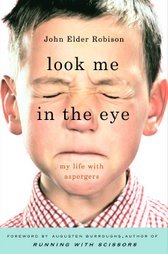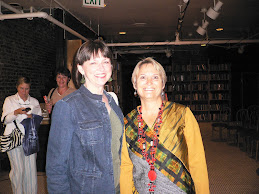Saving is good. Debt is bad. The end.
Okay, maybe that’s a little too simplistic, so I’ll elaborate. I’ve never been poor, but I had some pretty lean times in the past brought on by my own inability to properly manage my money. I started babysitting when I was about 10 and received my first actual paycheck when I was 13. In high school, I babysat during the school year and often worked during summers and holidays. In college, I worked as a waitress at a pancake house, for my Dad at his hotel, or in the dorms. I worked at least part time my whole life.
In the beginning it never even occurred to me to save the money I earned. Until I moved out on my own and had rent and monthly bills to pay, I didn’t learn the basics of budgeting. Back then as long as I had at least a dollar left when I got the next paycheck, I figured I was doing well.
While I didn’t like being an insurance and securities salesperson and helping others with their financial plans, it was actually one of the most beneficial jobs I ever had. In order to teach my clients I had to learn myself. However, learning something and actually putting it into practice often don’t go hand in hand. It took me years to truly grasp all the concepts.
Bankruptcy was a horrible experience for me but – as with the cancer – from something awful came something beneficial. After bankruptcy I had no credit cards, loans or anything else to fall back on. If I wanted or needed something, I had to have the money to pay for it. There was no more buy it now and pay for it later at exorbitant interest rates for several years. I had to have the money in hand, or in the bank, or I couldn’t have whatever it was I thought I needed.
Being in this position puts you in touch with reality fairly quickly. You have needs – like money for the house, utilities, food, gas, insurance and the rest of the basics. Then there’s everything else. Adjusting to the fact that movies, clothes, dinner out, trips, etc. were not part of the necessity pool was very difficult at first. I was miserable because I felt like I wasn’t being allowed to live and partake in the American dream of excessive consumerism.
The situation forced me to look differently at what I already had. Maybe my clothes weren’t so shabby after all and could last a while longer. Renting movies or watching them on TV might not have the same effect as seeing them in a theater, but you could get up and go to the bathroom without missing anything. Pasta made at home tasted just as good as pasta from a restaurant because secretly I’m a really good cook. Staying home for vacations and holidays could be restful and I could get lots of extra things done that I didn’t ordinarily have time for.
Eventually I stopped needing all the things that used to seem so important and started appreciating what I had. Whenever I needed or wanted something beyond the normal scope of my income, I was forced to save for it. Eventually, I started saving out of habit, so in case something came up, I would have the money for it. This all required a lot of discipline on my part and fiscal discipline was unfamiliar territory. It was a great learning experience.
I’m still saving, only now in a methodical way. I put money into a 401k and into a Roth IRA every year. I have no debt except for my mortgage. I keep that because it’s a good tax deduction, but have a plan to pay it off by the time I retire. I have one credit card with a low fixed rate that’s usually paid off monthly. I have one department store card because of all the extra discounts it offers that is always paid off monthly. I pay cash for most things and figure if I can’t pay cash for them, I probably can’t afford them and therefore don’t need them. And, my credit’s been perfect since the debacle of 1992.
I can live without a lot of things I once thought I really needed. I learned to reduce, reuse and recycle. I also learned I’m very handy around the house and a whole lot cheaper than most of the tradesmen and women you can hire. My work may not match the quality of theirs, but the joy I feel in accomplishing some home improvement or repair – especially if I never tried doing it before - is unparalleled.
Doing all this has reduced the amount of stress in my life exponentially. I took the fear out of my financial situation and replaced it with a good dose of reality and sensibility. I don’t resent being unable to have everything I want and find I’m more inclined to reduce the amount of stuff in my life now than accumulate more. Life is much simpler and far more enjoyable this way.
Saving is good. Debt is bad. The end.
Wednesday, June 13, 2007
Subscribe to:
Post Comments (Atom)










3 comments:
I have had a similar experience. I didn't go bankrupt but I did lose all my money and had to dig myself out of a deep hole. It took 6 years.
I agree with everything you've said.
I would just add . . . try and acquire assets that will work for you, so that you can eventually live on the work of your assets as opposed to your own labor.
Rental real estate and royalty from books and photography are two examples I myself use.
The garage properties that I rent out proved to be one of the bet investments I ever made, as they rise in value while the tenants pay off my loans.
Remember, the government subsidizes real estate investing via tax deferrals, depreciation deduction, and interest writeoff. There's nothing comparable for stock market investing.
Well put, that's a lesson I learned about two years ago. When you don't crave what you don't really want, it makes things a lot easier.
It's not just a good idea, it's a Nobel Truth.
Personal Finance Management should be taught in public schools--I think it's a skill everyone should be taught. I had to learn it by myself!
Post a Comment